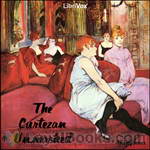|
Books Should Be Free Loyal Books Free Public Domain Audiobooks & eBook Downloads |
|
|
Books Should Be Free Loyal Books Free Public Domain Audiobooks & eBook Downloads |
|
Satires |
|---|
|
Book type:
Sort by:
View by:
|
By: F. Anstey (1856-1934) | |
|---|---|
 In Brief Authority
In Brief Authority
Satiric comedy from 1915 about a nouveau riche British family and their nanny who get whisked off to Maerchenland ('the land of Fairy Tales') one evening in a car drawn by storks. The matron of the family, a thorough snob, is crowned Queen of the country by mistake. She is quick to accept her new position and is determined to introduce British social niceties in her realm. And this really is the land of Fairy Tales, with gnomes, giants, a dragon, magic, a fairy godmother and more. Trouble quickly starts to brew as the royal couple and their son introduce things like capitalism and golf... | |
By: Herbert George Jenkins (1876-1923) | |
|---|---|
 John Dene of Toronto; a Comedy of Whitehall
John Dene of Toronto; a Comedy of Whitehall
John Dene comes to England with a great invention, and the intention of gingering-up the Admiralty. His directness and unconventional methods bewilder and embarrass the officials at Whitehall, where, according to him, most of the jobs are held by those "whose great-grandfathers had a pleasant way of saying how-do-you-do to a prince." Suddenly John Dene disappears, and the whole civilised world is amazed at an offer of £20,000 for news of him. Scotland Yard is disorganised by tons of letters and thousands of callers... | |
By: Baron Ludvig Holberg (1684-1754) | |
|---|---|
 Niels Klim's Journey Under the Ground
Niels Klim's Journey Under the Ground
Niels Klim’s Underground Travels, originally published in Latin as “Nicolai Klimii Iter Subterraneum” (1741) is a satirical science-fiction/fantasy novel written by Ludvig Holberg, a Norwegian-Danish dramatist, historian, and essayist, born in Bergen, Norway. It was his first and only novel. It describes a utopian society from an outsider’s point of view, and often pokes fun at diverse cultural and social topics such as moral, science, sexual equality, religion, governments, and philosophy. | |
By: Lord Dunsany (1878-1957) | |
|---|---|
 Fifty-One Tales
Fifty-One Tales
Very brief, well-crafted stories, many having surprise endings, all steeped in the dye of myth and calling to every reader's neglected imagination. | |
By: Clarence Day, Jr. (1874-1935) | |
|---|---|
 This Simian World
This Simian World
Clarence Day, Jr., best known for his work Life with Father, presents a satirical speculation on how the world might be different if we apes had not risen to prominence, but rather one of the other species had become dominant in our place. | |
By: Maria Edgeworth (1768-1849) | |
|---|---|
 Castle Rackrent
Castle Rackrent
| |
By: Francis Coventry (1725-1754 or 1759) | |
|---|---|
 The History of Pompey the Little
The History of Pompey the Little
"Pompey, the son of Julio and Phyllis, was born A.D. 1735, at Bologna in Italy, a place famous for lap-dogs and sausages." At an early age he was carried away from the boudoir of his Italian mistress by Hillario, an English gentleman illustrious for his gallantries, who brought him to London.The rest of the history is really a chain of social episodes, each closed by the incident that Pompey becomes the property of some fresh person. In this way we find ourselves in a dozen successive scenes, each strongly contrasted with the others... | |
By: May Sinclair (1863-1946) | |
|---|---|
 Tysons
Tysons
Another frank May Sinclair exploration of fin de siècle English love and sex, marriage and adultery, "The Tysons" is the story of the caddish Nevill Tyson and his beautiful but frivolous young wife Molly. Sinclair uses a different narrative voice than we hear in much of her fiction, a sort of witty Jane Austen archness as she dissects the characters of the provincial village Drayton Parva. As always, she demonstrates an intriguing mixture of Victorian prudishness and modern free-thinking, particularly in her rendering of the sexual escapades of her characters... | |
By: William S. Gilbert (1836-1911) | |
|---|---|
 The Pirates of Penzance
The Pirates of Penzance
The Pirates of Penzance; or, The Slave of Duty is a comic opera in two acts, with music by Arthur Sullivan and libretto by W. S. Gilbert. The story concerns Frederic, who, having completed his 21st year, is released from his apprenticeship to a band of tender-hearted pirates. He meets Mabel, the daughter of Major-General Stanley, and the two young people fall instantly in love. Frederic finds out, however, that he was born on 29 February, and so, technically, he only has a birthday each leap year... | |
By: Don Marquis (1878-1937) | |
|---|---|
 Danny's Own Story
Danny's Own Story
Danny is the proverbial basket-on-the-doorstep baby, found by Hank and Elmira Walters, a childless couple who welcome him into their home because they need a new topic over which to bicker. Bicker they do, and fight just as often, from the day they attempt to settle on a name, to the day eighteen years later, when Danny and Hank come to blows and Danny leaves home in company with Dr. Kirby, bottler and supplier of the miracle elixir, Siwash Indian Sagraw. For years Danny wanders aimlessly--from Illinois to Indiana to Ohio, back to Illinois, then into Tennessee and points south--sometimes in company with Dr... | |
By: Laurence Oliphant (1829-1888) | |
|---|---|
 Piccadilly A Fragment of Contemporary Biography
Piccadilly A Fragment of Contemporary Biography
Laurence Oliphant, author, international traveller, diplomatist and mystic, who spent a decade in later life under the influence of the spiritualist prophet Thomas Lake Harris, writes here under the amusing guise of Lord Frank Vanecourt, bringing us a veritable pot-pourri of events from everyday life in 1865 as he moves amongst the great, the good, and not so good who reside in the exclusive area of London's Piccadilly W1 and its surroundings. (Introduction by Nigel Carrington) | |
By: F. Anstey (1856-1934) | |
|---|---|
 Bayard from Bengal
Bayard from Bengal
The estimable gentleman, Chunder Bindabun Bhosh, ESQ., B.A., travels from his native India to England, with his impeccable English and manners, which immediately mark him as a foreigner, and embarks on an enviable program of escapades. These stories are the product of the fertile imagination of Hurry Bungsho Jabberjee, B.A., a nom de plume for the humorist F. Anstey, which is a further nom de plume for Thomas Anstey Guthrie. Whether rescuing a nubile maiden from a charging bull or falling in love with said nubile maiden, Mr. Bosh, B. A. cannot help but perform with the requisite humor to engage our attention. | |
By: John Wight (1866-1944) | |
|---|---|
 Mornings at Bow Street
Mornings at Bow Street
This is a collection of various articles found in Morning Herald columns. Some are found interesting, some may be hilarious! The 84 pieces of this book are actual reports throughout the 1870s newspaper written by the reporter, John Wight and Illustrated by George Cruikshank | |
By: Christopher Morley (1890-1957) | |
|---|---|
 In the Sweet Dry and Dry
In the Sweet Dry and Dry
Written just before Prohibition to entail the possible troubles that might happen en route. Both sides of the argument, or battle as the case may be, strike out with various over-top methods like legislating most fruits and vegetables as unsafe or intoxicating large groups with breathable alcohol. | |
By: Alexander Pope (1688-1744) | |
|---|---|
 The Rape of the Lock
The Rape of the Lock
The Rape of the Lock is a mock-heroic narrative poem written by Alexander Pope, first published anonymously in Lintot's Miscellany in May 1712 in two cantos (334 lines), but then revised, expanded and reissued under Pope's name on March 2, 1714, in a much-expanded 5-canto version (794 lines). The final form was available in 1717 with the addition of Clarissa's speech on good humour. The poem satirizes a petty squabble by comparing it to the epic world of the gods. It was based on an incident recounted by Pope's friend, John Caryll... | |
By: Molière | |
|---|---|
 Tartuffe
Tartuffe
Jean-Baptiste Poquelin, known by his stage name Molière, was a French playwright and actor who is considered to be one of the greatest masters of comedy in Western literature. Among Molière's best-known works is Tartuffe or The Hypocrite, written in 1664. Though Tartuffe was received well by the public and even by Louis XIV, its popularity was lessened when the Archbishop of Paris issued an edict threatening excommunication for anyone who watched, performed in, or read the play.Tartuffe, a pious fraud who pretends to speak with divine authority, has insinuated himself into the household of Orgon... | |
By: Gaius Petronius Arbiter | |
|---|---|
 The Satyricon
The Satyricon
Satyricon (or Satyrica) is a Latin work of fiction in a mixture of prose and poetry. It is believed to have been written by Gaius Petronius, though the manuscript tradition identifies the author as a certain Titus Petronius. As with the Metamorphoses of Apuleius, classical scholars often describe it as a "Roman novel", without necessarily implying continuity with the modern literary form.The surviving portions of the text detail the misadventures of the narrator, Encolpius, and his lover, a handsome sixteen-year-old boy named Giton... | |
By: Arnold Bennett (1867-1931) | |
|---|---|
 Self and Self-management: Essays about Existing
Self and Self-management: Essays about Existing
Bennett's essays always provide food for thought and bring a wry smile to the lips. Human nature, it appears, changes little over the ages, and Bennett's writing stands the test of time, though in the case of some of the essays in this eclectic collection, it is well to remember that they were written at the time of the First World War and the fight for women's suffrage. | |
By: Mark Twain | |
|---|---|
 Anti-imperialist writings
Anti-imperialist writings
This audiobook is a collection of Mark Twain's anti-imperialist writings (newspaper articles, interviews, speeches, letters, essays and pamphlets). | |
By: John Dryden (1631-1700) | |
|---|---|
 Absalom and Achitophel
Absalom and Achitophel
John Dryden published Absalom and Achitophel: A Poem in 1681. It is an elaborate historical allegory using the political situation faced by Kind David (2 Samuel 14-18) to mirror that faced by Charles II. Each monarch had a son whom a high-ranking minister attempted to use against him. James Scott, first Duke of Monmouth, Charles II's illegitimate son, was detected planning a rebellion late in 1681, supposedly instigated by the Earl of Shaftesbury, who was tried for high treason, and it is believed that Dryden wrote the poem in an effort to sway the jury in his trial... | |
By: Anonymous | |
|---|---|
 The Curtezan Unmasked
The Curtezan Unmasked
"The Curtezan unmasked or, the Whoredomes of Jezebel Painted to the Life: With Antidotes against them, or Heavenly Julips to cool Men in the Fever of Lust" is a fire-and-brimstone polemic by "A Spiritual Physician" to persuade young men not to succumb to harlotry and its accompanying perils. (Introduction by Denny Sayers) | |
By: August Strindberg (1849-1912) | |
|---|---|
 The Red Room
The Red Room
A young idealistic civil servant, Arvid Falk, leaves the drudgery of bureaucracy to become a journalist and author. As he explores various social activities — politics, publishing, theatre, philanthropy, and business — he finds more hypocrisy and corruption than he thought possible. He takes refuge with a group of "bohemians", who meet in a red dining room in Berns Salonger to discuss these matters. (Introduction adopted from Wikipedia) | |
By: Thomas Love Peacock (1785-1866) | |
|---|---|
 Headlong Hall
Headlong Hall
Headlong Hall is the first novel by Thomas Love Peacock, published in 1815 (dated 1816). As in his later novel Crotchet Castle, Peacock assembles a group of eccentrics, each with a single monomaniacal obsession, and derives humor and social satire from their various interactions and conversations. The setting is the country estate of Squire Harry Headlong Ap-Rhaiader, Esq. in Wales. | |
By: A. A. Milne (1882-1956) | |
|---|---|
 Not That It Matters
Not That It Matters
More of the witty, wry, and deliciously wicked essays and articles written by Milne. Most people know him as the creator of Winnie The Pooh, but he worked for many years as editor of Punch Magazine and these are some of his best. Not That It Matters is a collection of over 40 of these short stories and articles. Not That It Matters collects his columns for Punch, which include poems, essays and short stories, from 1912 to 1920. Most of his writing pokes fun, both gentle and not so gentle at a variety of topics... | |
By: Moliere (1622-1673) | |
|---|---|
 The Imaginary Invalid
The Imaginary Invalid
The Imaginary Invalid is a three-act comédie-ballet by the French playwright Molière. It was first performed in 1673 and was the last work he wrote. The plot centers around Argan, the 'imaginary invalid' who is completely dependent on his doctors and wants to marry his daughter to a doctor against her will, so that he will always have medical care freely available to him. In an ironic twist of fate, Molière collapsed during his fourth performance as Argan on 17 February and died soon after. | |
By: Denis Diderot (1713-1784) | |
|---|---|
 Rameau's Nephew
Rameau's Nephew
Rameau's Nephew, or the Second Satire (French: Le Neveu de Rameau ou La Satire seconde) is an imaginary philosophical conversation written by Denis Diderot, probably between 1761 and 1772. It was first published in 1805 in German translation by Goethe, but the French manuscript used has subsequently disappeared. The German version was translated back into French by de Saur and Saint-Genies and published in 1821. The first published version based on French manuscript appeared in 1823 in the Brière edition of Diderot's works... | |
By: Various | |
|---|---|
 The Sturdy Oak
The Sturdy Oak
At a certain committee meeting held in the spring of 1916, it was agreed that fourteen leading American authors, known to be extremely generous as well as gifted, should be asked to write a composite novel....Third, to have the novel finished and published serially during the autumn Campaign of 1917.The carrying out of these requirements has not been the childish diversion it may have seemed. Splendid team work, however, has made success possible.Every author represented, every worker on the team, has gratuitously contributed his or her services; and every dollar realized by the serial and book publication of "The Sturdy Oak" will be devoted to the Suffrage Cause... | |
By: Plato (Πλάτων) (c. 428 BC - c. 347 BC) | |
|---|---|
 Gorgias
Gorgias
This dialogue brings Socrates face to face with the famous sophist Gorgias and his followers. It is a work likely completed around the time of "Republic" and illuminates many of the spiritual ideas of Plato. The spirituality, as Jowett points out in his wonderful introduction, has many ideas akin to Christianity, but is more generous as it reserves damnation only for the tyrants of the world. Some of the truths of Socrates, as presented by Plato, shine forth in this wonderful work on sophistry and other forms of persuasion or cookery. | |
By: Henry Fielding | |
|---|---|
 The Old Debauchees
The Old Debauchees
Young Laroon plans to marry Isabel, but Father Martin manipulates Isabel's father, Jourdain, in order to seduce Isabel. However, other characters, including both of the Laroons, try to manipulate Jourdain for their own ends; they accomplish it through disguising themselves as priests and using his guilt to convince him of what they say. As Father Martin pursues Isabel, she is clever enough to realize what is happening and plans her own trap. After catching him and exposing his lust, Father Martin is set to be punished. | |
By: John Dryden (1631-1700) | |
|---|---|
 Dryden vs Shadwell - a Poetic Duel
Dryden vs Shadwell - a Poetic Duel
Throughout history there have been many creative artists whose fame depends largely on their association with a much greater artist. Such the case of Thomas Shadwell, poet and prolific writer of low brow comedies, who is today most famous as the butt of satire by one of greatest and most influential English poets, John Dryden. Shadwell and Dryden were at first colleagues and collaborators, but later fell out over some sharp divergences of opinion. In particular, Dryden disagreed with Shadwell's high estimation of Ben Jonson, and even more of the latter's claim to be be Jonson's artistic heir... | |
By: James Thomson (1834-1882) | |
|---|---|
 Satires and Profanities
Satires and Profanities
"Believing as I do that James Thomson is, since Shelley, the most brilliant genius who has wielded a pen in the service of Freethought, I take a natural pride and pleasure in rescuing the following articles from burial in the great mausoleum of the periodical press. There will doubtless be a diversity of opinion as to their value. One critic, for instance, has called “The Story of a Famous Old Jewish Firm” a witless squib; but, on the other hand, the late Professor Clifford considered it a piece of exquisite mordant satire worthy of Swift... | |
By: Washington Irving (1783-1859) | |
|---|---|
 Letters of Jonathan Oldstyle, Gent.
Letters of Jonathan Oldstyle, Gent.
The Letters of Jonathan Oldstyle, Gent. (1824) is a compilation of eight humorous and observational letters written by American writer, Washington Irving, under the pseudonym, Jonathan Oldstyle. These eight letters and one additional were first published as a series of "Letters to the Editor" of the New York paper, The Morning Chronicle, between 1802 and 1803. In them Oldstyle skewered the local New York social scene on the topics of etiquette, marriage, fashion, and other particulars of human interaction... | |